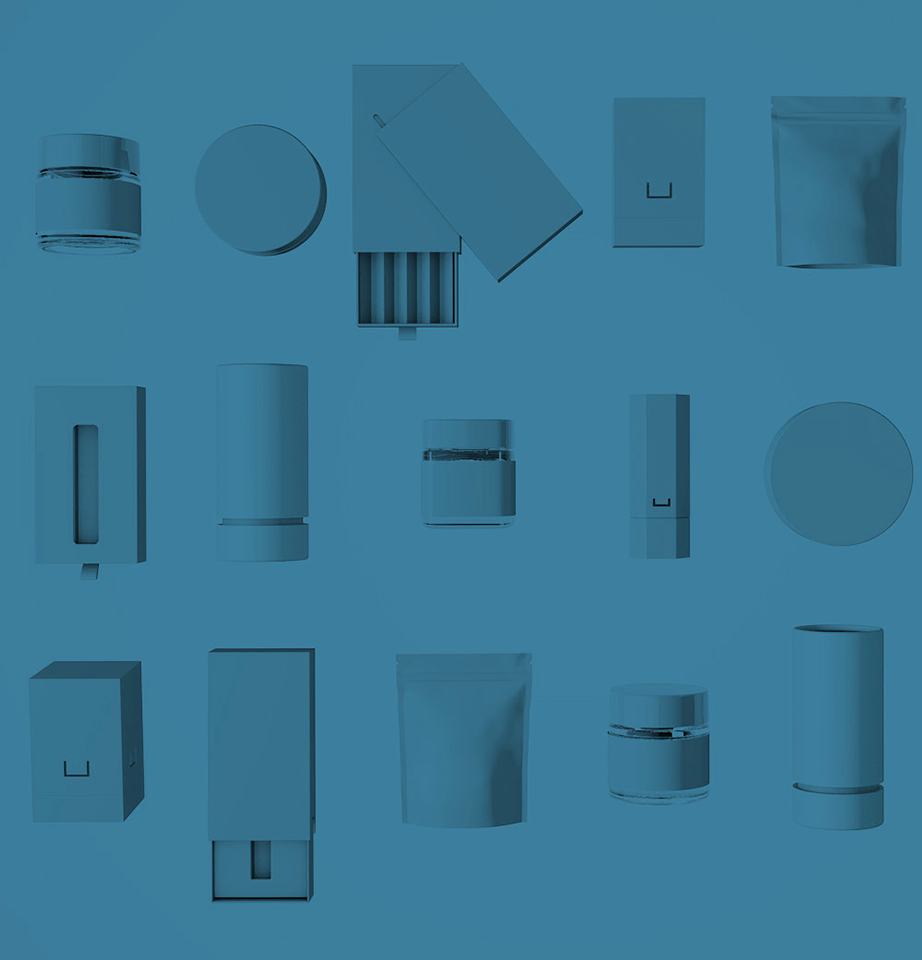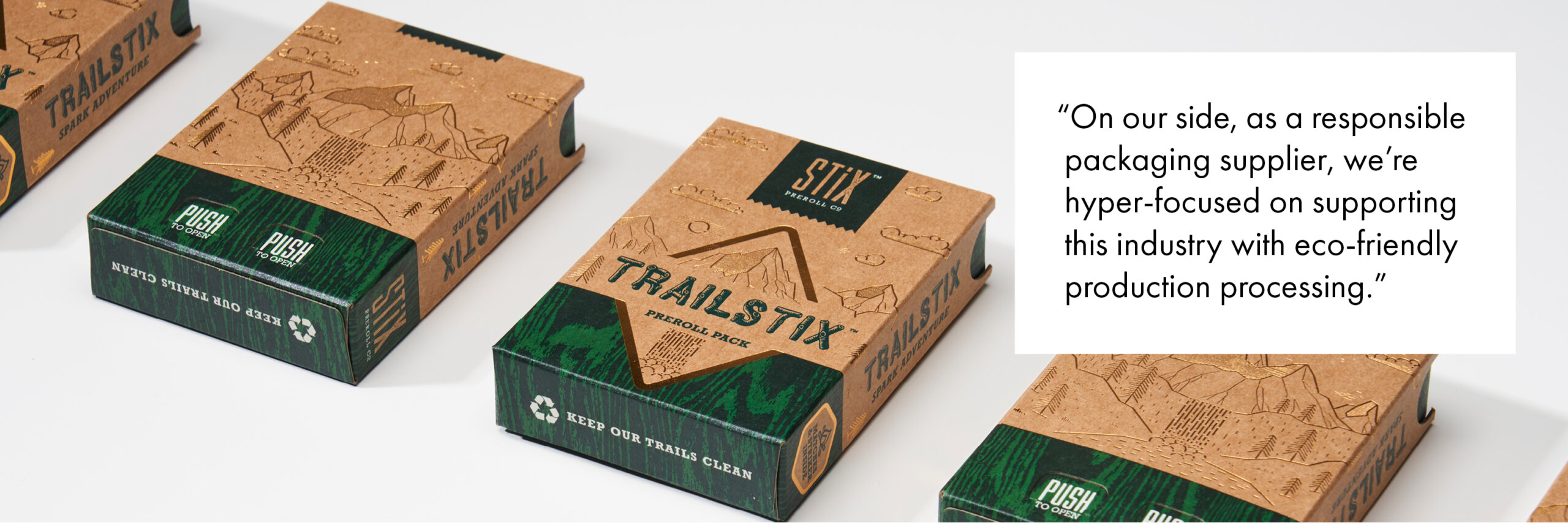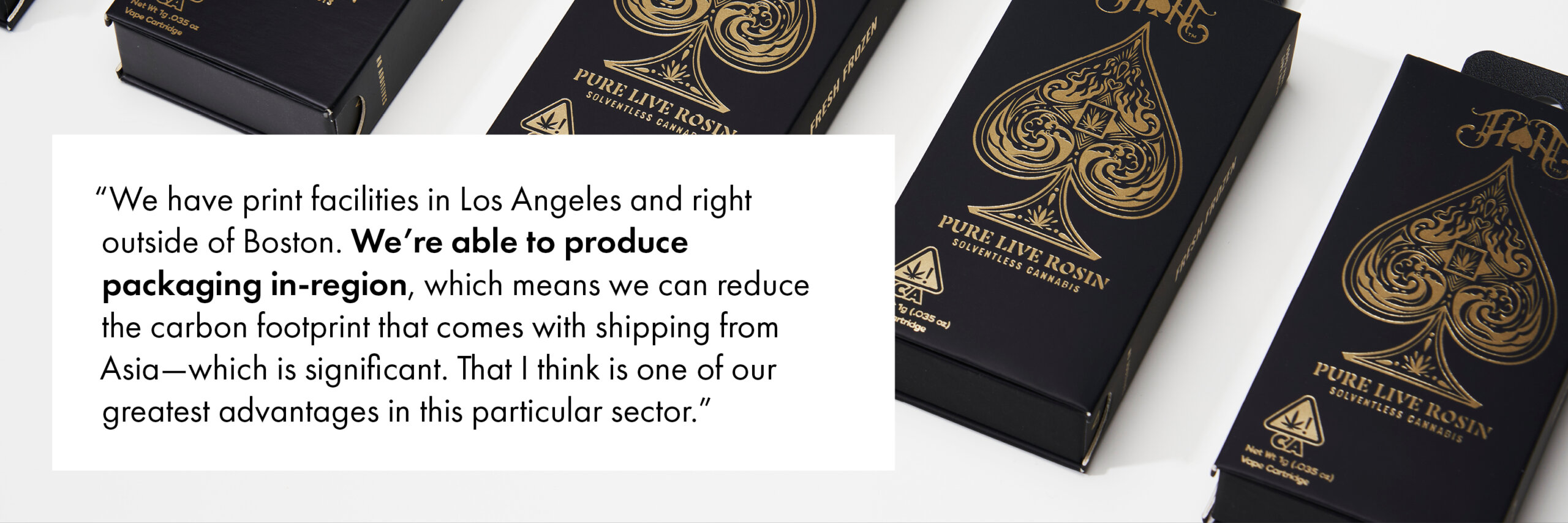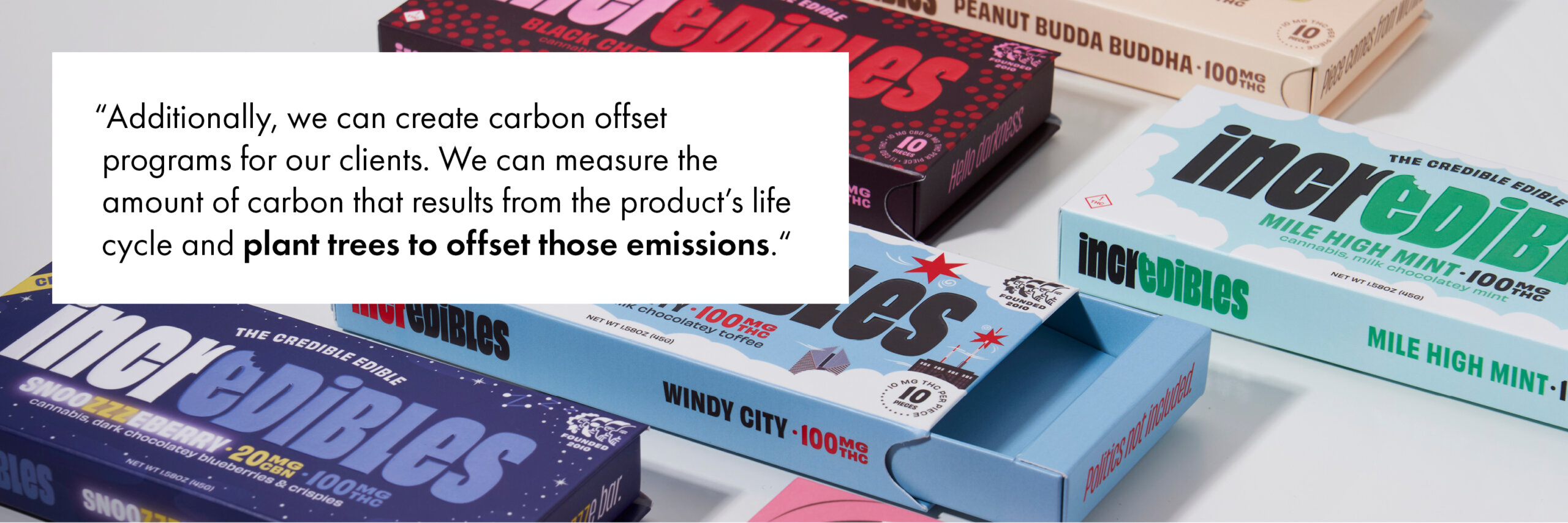
MJBizCon Q+A: How Are We Helping the Cannabis Industry Grow in a Sustainable Way?
We’re gearing up for the 11th annual MJBizCon, the largest convention, and trade show for businesses in the cannabis industry.
The industry is growing rapidly—from $30 billion in global sales in 2021 to a projected $55 billion in 2026. While mature markets in Canada, California, Colorado, Washington, and Oregon are stabilizing, newer markets continue to emerge and boom.
While this is certainly an exciting time, the cannabis industry is no stranger to growing pains. Not only do many people still oppose the legalization of cannabis, but growers and distributors face increased scrutiny for its impact on the planet. They’re continuously called out for straining the electric grid with indoor grows, using too much water during outdoor grows in drought-prone regions, filling the air with odor and pollution, and generating huge amounts of waste through vaping devices, cartridges, and packaging.
It’s no secret that sustainability will be the center of conversation this year at MJBizCon, and we’re excited to represent the packaging industry and offer innovative, proven solutions that promote sustainability in this space.
To take a closer look at the industry’s current challenges, wins, and opportunities for growth surrounding sustainable packaging, we sat down for a Q+A with our Vice President of Strategic Packaging, Jesse Dixon.
With almost a decade of experience specializing in THC and CBD Packaging Development, Jesse shares his inside perspective on where the industry has been, where it’s going, and GPA Global’s essential role in the journey.
What does a typical day at MJ Biz Con look like?
MJ Biz Con is the biggest B2B trade show for the cannabis industry. It’s a phenomenal opportunity for anyone in the sector to connect and explore. Whether you’re in operations and you’re looking for some new equipment, you’re a manufacturer showcasing new innovative products, you’re on the supply chain procurement side meeting your vendors, or you’re in marketing scoping out what other brands are doing—it’s a great chance to connect with your partners, collaborate with new people, get inspired, and share inspiration.
For GPA, it’s a great chance to see our clients and show the industry what we’ve been doing—what’s innovative and new. We’ve been quietly growing and doing extremely well in this sector, and our goal is to have a “coming home” party to say, “Hey, you know about us, and you’ve seen our product, you just might not know our name yet.”
What are you most looking forward to this year?
I’m extremely excited for us to showcase our growth and innovative approach to all the key players in this industry.
Our main goal has always been to help this industry work with more ethical and responsible vendors. Industries like health & beauty, spirits, and consumer electronics all have so many great options when it comes to manufacturing partners. But when the cannabis industry started booming, a lot of inexperienced packaging companies weaved their way into the mix because they saw a new opportunity.
But GPA Global has been a manufacturing partner for decades—long before the cannabis industry started booming. And this industry doesn’t have enough experienced, ethical manufacturing partners.
A lot of huge packaging companies are still a little bit iffy about joining the industry because it’s not federally legal yet. But at GPA, we didn’t hesitate to say, “We’re in.” We strongly believe this sector deserves a responsible manufacturing partner that will deliver quality packaging on time, at a high quality. And right now it doesn’t have enough of that. In that sense, we’re the unsung heroes because we’re trying to bring that to the industry and make it more accessible.
It can be hard to deliver that message through all the noise, but we’re excited to have the chance to do so. By the time we’re done with the show, we hope we’ve made some waves.
In what ways does the cannabis industry intertwine with the topic of sustainability?
I think the majority of the cannabis industry is pushing for green and sustainable initiatives. That’s true across all industries, but the cannabis industry in particular caters to a green market—it’s in their DNA to act in the best interest of Mother Earth.
As far as the packaging goes, there’s a huge initiative to make sure that the packaging itself is recyclable and/or made from recycled materials.

Are we using less water and less power when we produce our packaging items? That’s a huge initiative on our end.
So while the industry works to promise that their final packaging is recyclable and/or made from recycled materials—behind the scenes, we’re working to gather and show data that proves our manufacturing processes can help them deliver on that promise.
What sets GPA Global apart from other packaging suppliers at this trade show?
In short, in-region production.
A majority of the packaging produced for the cannabis industry is child-resistant. When child-resistant mechanisms are involved, a lot of that production takes place overseas in Asia. But at GPA, we have facilities to create this type of packaging in-region.

Outside of that, we utilize FSC Certified paper, soy inks, and other materials that exhibit a degradable function. I avoid using the word biodegradable because it’s become such a buzzword that’s often thrown around when it shouldn’t be. But we do use a lot of materials that have a degradable aspect to them, and certainly, a majority of our packaging is curbside recyclable.
It’s also worth mentioning that we’ve been hyper-focused on sustainability for 20+ years. This is not new for us—it’s in our roots. Since day one, our focus has always been sustainability, as opposed to some of our competitors who don’t have as much of a say in the recyclability or the sustainability that goes on behind the scenes throughout the production process.
This industry is unique because it’s not federally legal in many countries. Do you think it’s still possible to conduct meaningful research around sustainability without government funding?
It’s certainly difficult, but I think it’s coming. It’s such a new market that there’s a lot of growing to be done there (pun intended).
For example, states like New York are coming forward and saying, “Hey very soon here, we’re going to require that any single-use plastic contains at least 25% post-consumer recycled content.” So, it’s great to see individual states setting their own restrictions. But for now, it’s really up to the brands, companies, responsible vendors, and suppliers of packaging materials to make sure that the packaging is compliant.
As far as third-party organizations that are funded to help measure the impact of the companies and confirm that they’re actually doing what they say they’re doing—I don’t know if those exist or when that funding will be available. But that’s more reason for us to help motivate, govern, and measure what we’re doing and what our clients are doing. That way, we can say, “Hey, we have the data to back up our claims when so many other people don’t.”
In what specific ways does GPA Global help its clients gather data and stay accountable?
For any client who requests data, we can provide documents like a Life Cycle Assessment (LCA) document that outlines the carbon emissions and environmental impacts associated with the packaging’s material extraction, manufacturing, transportation, usage, and disposal. This not only helps our clients stay accountable, but it allows for continuous improvement.
 we’re proud to offer this option to our clients, so they can share this information with key stakeholders, their internal teams, or even their consumers..
we’re proud to offer this option to our clients, so they can share this information with key stakeholders, their internal teams, or even their consumers..
Not to mention, we’re a large organization (and growing rapidly), so we have a robust sustainability team. Many of our competitors don’t have an entire team of professionals dedicated to sustainability.
What do you think is the biggest challenge when it comes to packaging in the cannabis industry?
I think the biggest challenge for the industry as a whole is filtering through all the noise and the greenwashing to find out who’s as responsible as they say they are.
The biggest challenge for GPA Global is ensuring people see what we’re doing and accomplishing. There’s a lot of talk when it comes to sustainable packaging in the cannabis industry, and many packaging suppliers don’t follow through on their promises. But we are in the minority, and we’re actually making significant strides in this space. So our biggest challenge is really getting the brand’s attention to show them the data we have—which is substantiated and proven.
Other than that, the industry is moving so quickly—there’s not a lot of time to slow down and sift through options. I also think there’s a common misconception that sustainable processes cost more than unsustainable ones. So as brands face fast expansion (in a vulnerable economy), there’s a conflicting force between lowering costs and pursuing sustainability. There’s a fear that it’s “harder” and more expensive to lean into sustainable initiatives. But we really want to deliver the message that it can be done in a very efficient, cost-effective way, and that’s exactly what we’re here to help with.
Is there anything else you’d like to add?
The key talking point for everyone at MJBizCon is sustainability. Although we’re absolutely going to touch on it, it can’t be our leading message because it will get lost in the noise.
However, we want to leave people with our message of in-region production. You know, cannabis in California has to be grown in California, so it makes the most sense if your soil, fertilizer, lights, and packaging come from California too. Because one, there are lead times associated with overseas production. And two, there are cost advantages when you’re not shipping your packaging in a container across the world. And in-region production ties into sustainability, so everyone wins.
At the end of the day, we want to do the best for Mother Nature, of course—but we want to do it in a cost-effective way. And the reality is that those two things can live together. They are not mutually exclusive.